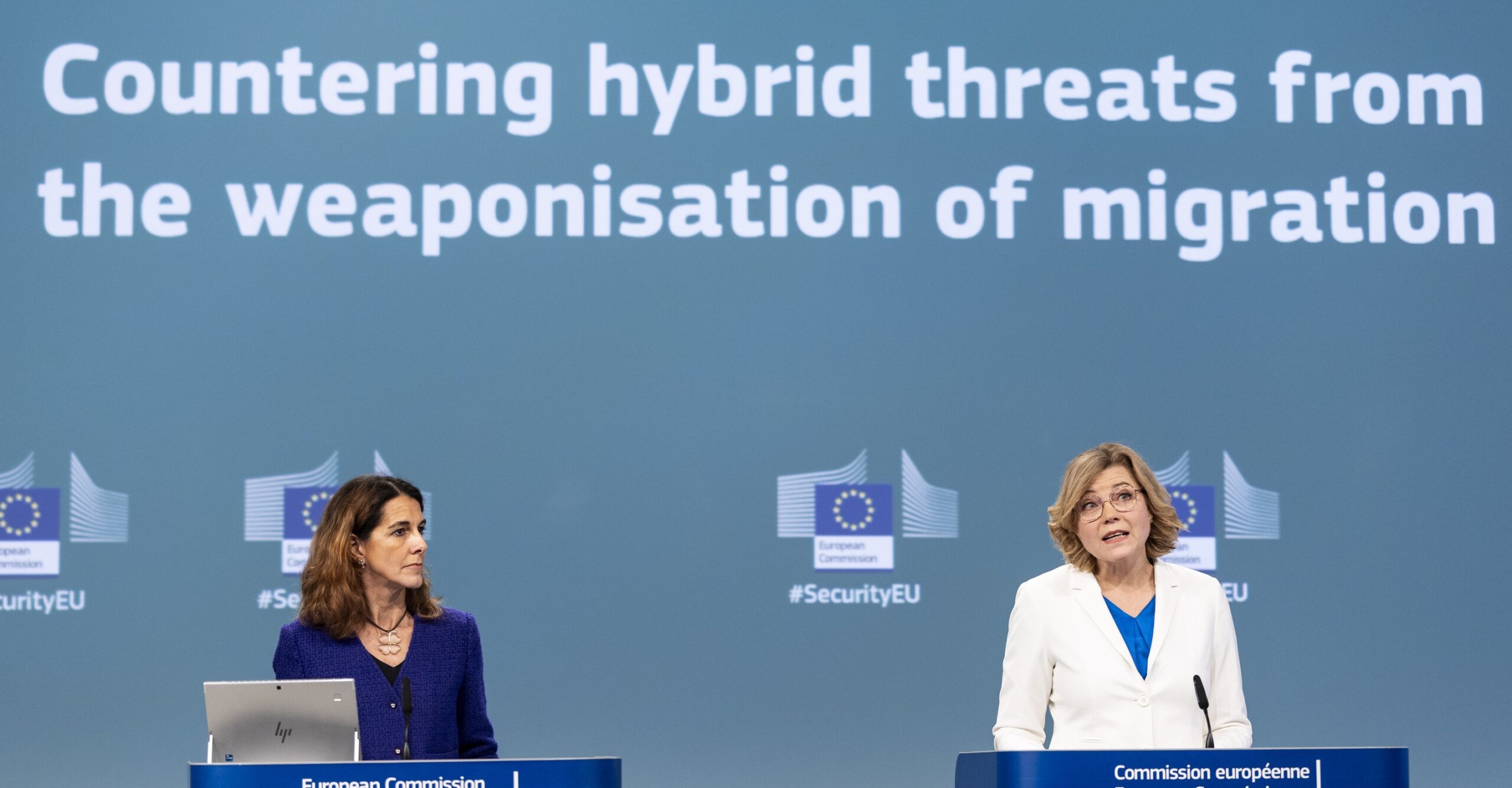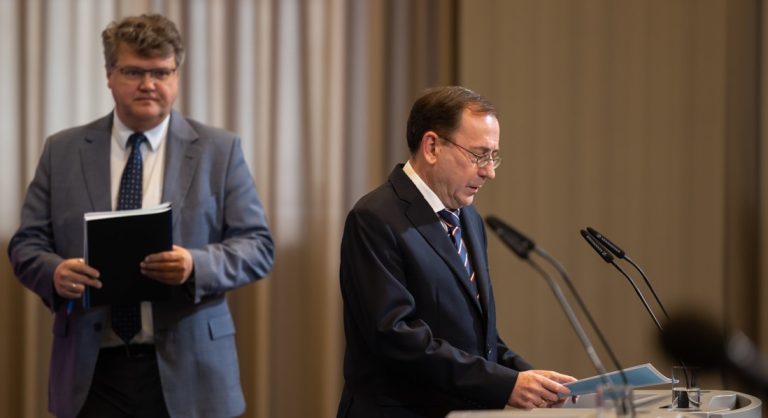Poland gets €52m from EU to protect border from “weaponisation of migrants” by Russia and Belarus

Keep our news free from ads and paywalls by making a donation to support our work!
Notes from Poland is run by a small editorial team and is published by an independent, non-profit foundation that is funded through donations from our readers. We cannot do what we do without your support.
The European Commission has announced that it will allocate €170 million to countries neighbouring Russia and Belarus in order to enhance protection of their borders. Poland is set to receive €52 million, the biggest share from the pool.
Brussels says that the funds are intended to “bolster capacity to counter hybrid threats”, in particular the “weaponisation of migrants” by Russia and Belarus “as a political tool to destabilise EU society by exploiting the EU’s principle of right to asylum”.
The commission has also indicated that member states can, in certain circumstances, introduce measures that “may entail serious interferences with fundamental rights such as the right to asylum”.
We can not allow Russia and Belarus to use our own values, including the right of asylum, against us.
Today, the @EU_Commission adopted a Communication on hybrid threats and weaponisation of migration ⤵️ https://t.co/wB4i0esFOu pic.twitter.com/xGRQurTeZn
— Piotr Serafin (@Piotr_Serafin) December 11, 2024
“We have taken another decisive step to support our frontline member states in countering hybrid threats from Russia’s and Belarus’s unacceptable weaponisation of migration,” said European Commission President Ursula von der Leyen. “Autocrats must never be allowed to use our European values against us.”
The commission notes that the number of people crossing into the EU via the Belarusian border increased by 66% in 2024 compared to the previous year. Poland has seen the largest numbers of such crossings by migrants and asylum seekers.
“Russia and Belarus take advantage of people, with a Russian student or tourist visa, using human beings in an act of hostility,” said the commission in a statement. “This hybrid warfare must be countered.”
In addition to the €52 million being granted to Poland, Finland, which has the EU’s longest border with Russia, will receive €50 million. The other recipients are Estonia (€19.4 million), Latvia (€17 million), Lithuania (€15.4 million) and Norway (€16.4 million), the latter of which is not an EU member state.
Von der Leyen says that the funds will be used “to upgrade electronic surveillance equipment, improve telecommunication networks, deploy mobile detection equipment and counter drone intrusion”.
In its announcement, the commission also indicated that “in the face of the current hybrid threat…EU countries may adopt national measures which may affect fundamental rights, such as the right to asylum”.
However, they added that “such measures have to be exceptional, temporary, proportionate and for clearly defined cases” and “the commission is ready to engage with member states taking exceptional measures, to help ensure that all relevant considerations are taken into account”.
Poland will “temporarily suspend the right to asylum”, announced @donaldtusk in a speech outlining a tougher new migration strategy aimed at “regaining control and ensuring security”.
„I will demand recognition of this decision in Europe,” he added https://t.co/LJO1Nem1HE
— Notes from Poland 🇵🇱 (@notesfrompoland) October 12, 2024
Those latter remarks come after Poland’s government last month announced plans to temporarily and partially suspend asylum rights in response to the crisis on the Belarus border. Prime Minister Donald Tusk later claimed to have received consent for the idea from fellow EU leaders.
Poland has this year experienced an increase in the number of attempted crossings by migrants and asylum seekers over its border from Belarus, as well as a number of cases of aggression towards Polish border officers, which in one case resulted in the death of a soldier.
In response, the government has reintroduced an exclusion zone along parts of the border while also loosening rules on the use of firearms by officers in defence of the border.
In a new podcast episode, @StanleySBill speaks with deputy interior minister @MaciekDuszczyk about Poland’s controversial new migration strategy.
They discuss the proposal to suspend asylum rights and how to avoid the „mistakes” of Western Europe https://t.co/E4d5qvHOHy
— Notes from Poland 🇵🇱 (@notesfrompoland) November 26, 2024

Notes from Poland is run by a small editorial team and published by an independent, non-profit foundation that is funded through donations from our readers. We cannot do what we do without your support.
Main image credit: EC – Audiovisual Service

Alicja Ptak is senior editor at Notes from Poland and a multimedia journalist. She previously worked for Reuters.






